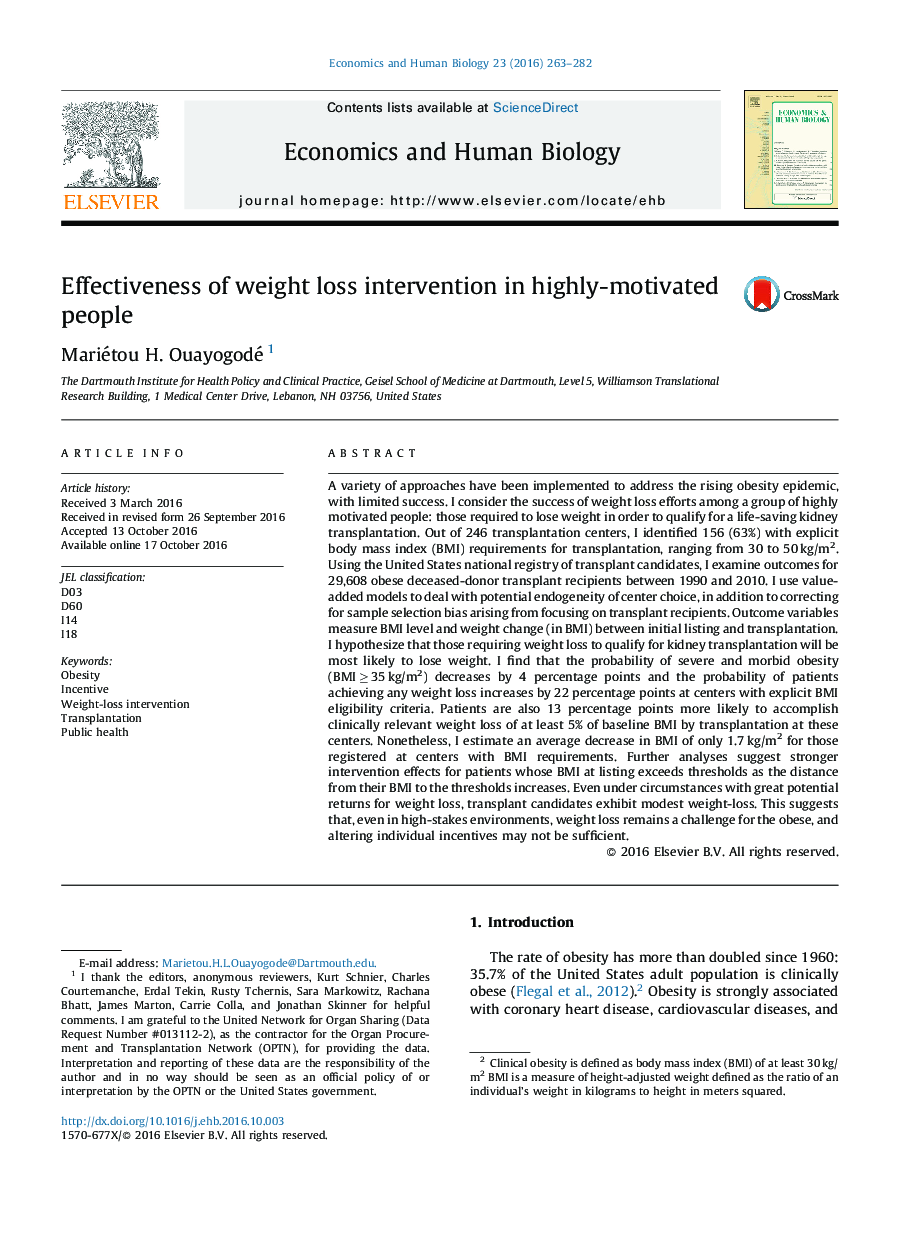| کد مقاله | کد نشریه | سال انتشار | مقاله انگلیسی | نسخه تمام متن |
|---|---|---|---|---|
| 5056843 | 1476556 | 2016 | 20 صفحه PDF | دانلود رایگان |
- Value-added regression models with correction for sample selection bias are employed.
- The effect of a strong and non-financial weight-loss incentive on obese patients' behavior is examined.
- The probability of achieving weight loss increases for obese transplant recipients at centers with BMI eligibility criteria.
- Stronger intervention effects are estimated for patients whose BMI at listing exceed thresholds as the distance from their BMI to the thresholds increases.
- Patients exhibit weight loss behavior consistent with the objective of obtaining transplantation in presence of BMI requirements.
A variety of approaches have been implemented to address the rising obesity epidemic, with limited success. I consider the success of weight loss efforts among a group of highly motivated people: those required to lose weight in order to qualify for a life-saving kidney transplantation. Out of 246 transplantation centers, I identified 156 (63%) with explicit body mass index (BMI) requirements for transplantation, ranging from 30 to 50 kg/m2. Using the United States national registry of transplant candidates, I examine outcomes for 29,608 obese deceased-donor transplant recipients between 1990 and 2010. I use value-added models to deal with potential endogeneity of center choice, in addition to correcting for sample selection bias arising from focusing on transplant recipients. Outcome variables measure BMI level and weight change (in BMI) between initial listing and transplantation. I hypothesize that those requiring weight loss to qualify for kidney transplantation will be most likely to lose weight. I find that the probability of severe and morbid obesity (BMI â¥Â 35 kg/m2) decreases by 4 percentage points and the probability of patients achieving any weight loss increases by 22 percentage points at centers with explicit BMI eligibility criteria. Patients are also 13 percentage points more likely to accomplish clinically relevant weight loss of at least 5% of baseline BMI by transplantation at these centers. Nonetheless, I estimate an average decrease in BMI of only 1.7 kg/m2 for those registered at centers with BMI requirements. Further analyses suggest stronger intervention effects for patients whose BMI at listing exceeds thresholds as the distance from their BMI to the thresholds increases. Even under circumstances with great potential returns for weight loss, transplant candidates exhibit modest weight-loss. This suggests that, even in high-stakes environments, weight loss remains a challenge for the obese, and altering individual incentives may not be sufficient.
Journal: Economics & Human Biology - Volume 23, December 2016, Pages 263-282
